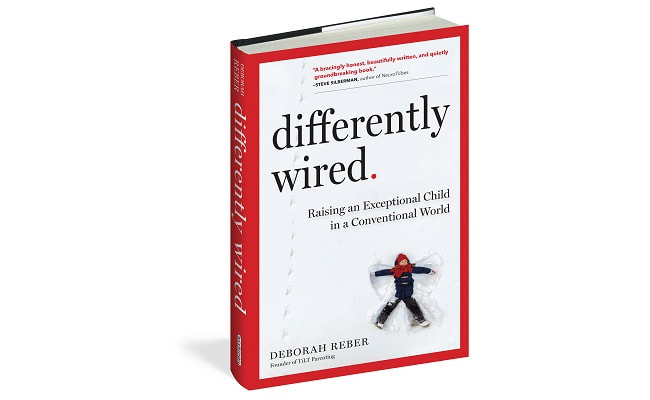Memory Craft
by Lynne Kelly: author of the bestselling Memory Code
Indigenous cultures the world over have memorised vast amounts of practical knowledge about animals, plants, navigation, laws, ethics, history, genealogies, agricultural practices…the list goes on and on.
We don’t use their memory methods, yet there is so much that we can learn from them.
1. Use characters
All indigenous cultures tell stories featuring a vast cast of characters who act out information. Knowledge performed is much more memorable than knowledge simply read. Use toys, favourite characters from books, film or games, imaginary friends, pets or characters they make up specifically for the purpose. Abstract knowledge, anything from science definitions, mathematics tables or grammar rules can be brought to life through the stories of the characters.
2. Use art and music
Indigenous cultures incorporate art and music in the knowledge they perform. Art and music should not be at the peripheries of the curriculum, as they too often are, but an invaluable tool for enriching all subjects. It is nigh impossible to forget a catchy song, so why not reword familiar tunes with critical knowledge?
3. Create memory palaces
A memory palace is a set of locations that students can walk around in order, inside the buildings, in the school grounds or around any familiar place Facts and ideas can then be associated with each location. The neuroscience is unequivocal the information associated with physical locations is retained with amazing accuracy. Laying down a foundation of facts enables students to see a big picture and then play with ideas, analyse, theorise and perform with higher levels of thinking founded on a firm knowledge base. They will see patterns in the knowledge that they could not have seen otherwise.
4. Convert knowledge from one form to another
Mind maps allow information to be presented logically on the page. Indigenous art works and ancient mandalas served a similar purpose, but used pictures. Creating a little image for each point forces the student to engage with the concept. It is all too easy to write a word without knowing its meaning. Creating logical paintings, vivid stories and songs from written text can only be done when the student has fully engaged with the information.
5. Handwrite and decorate notes
There are many lessons from the Middle Ages to aid memory. Books were rare and often memorised by the monks and others who had to preach from them. Typed notes, with every page looking the same, are totally forgettable.
Encourage students to hand write and use colours. They should lay out each page differently. It is amazing how often you can remember where an idea was on a page, so why not use that natural facility of the brain, and plan the layout with artistic flair? Medieval manuscripts had wide margins so comments could be added when revising, rather than just rote learning. The scribes would add drawings, known as drolleries, often unrelated to the text, just to make each page distinct and memorable.
I have been delighted to watch the way students in both primary and secondary schools have embraced these memory techniques.
It has been particularly pleasing to see students who have been disengaged due to learning difficulties or other issues find these alternative approaches appealing and effective. And fun!
Indigenous cultures the world over have memorised vast amounts of practical knowledge about animals, plants, navigation, laws, ethics, history, genealogies, agricultural practices…the list goes on and on.
We don’t use their memory methods, yet there is so much that we can learn from them.
1. Use characters
All indigenous cultures tell stories featuring a vast cast of characters who act out information. Knowledge performed is much more memorable than knowledge simply read. Use toys, favourite characters from books, film or games, imaginary friends, pets or characters they make up specifically for the purpose. Abstract knowledge, anything from science definitions, mathematics tables or grammar rules can be brought to life through the stories of the characters.
2. Use art and music
Indigenous cultures incorporate art and music in the knowledge they perform. Art and music should not be at the peripheries of the curriculum, as they too often are, but an invaluable tool for enriching all subjects. It is nigh impossible to forget a catchy song, so why not reword familiar tunes with critical knowledge?
3. Create memory palaces
A memory palace is a set of locations that students can walk around in order, inside the buildings, in the school grounds or around any familiar place Facts and ideas can then be associated with each location. The neuroscience is unequivocal the information associated with physical locations is retained with amazing accuracy. Laying down a foundation of facts enables students to see a big picture and then play with ideas, analyse, theorise and perform with higher levels of thinking founded on a firm knowledge base. They will see patterns in the knowledge that they could not have seen otherwise.
4. Convert knowledge from one form to another
Mind maps allow information to be presented logically on the page. Indigenous art works and ancient mandalas served a similar purpose, but used pictures. Creating a little image for each point forces the student to engage with the concept. It is all too easy to write a word without knowing its meaning. Creating logical paintings, vivid stories and songs from written text can only be done when the student has fully engaged with the information.
5. Handwrite and decorate notes
There are many lessons from the Middle Ages to aid memory. Books were rare and often memorised by the monks and others who had to preach from them. Typed notes, with every page looking the same, are totally forgettable.
Encourage students to hand write and use colours. They should lay out each page differently. It is amazing how often you can remember where an idea was on a page, so why not use that natural facility of the brain, and plan the layout with artistic flair? Medieval manuscripts had wide margins so comments could be added when revising, rather than just rote learning. The scribes would add drawings, known as drolleries, often unrelated to the text, just to make each page distinct and memorable.
I have been delighted to watch the way students in both primary and secondary schools have embraced these memory techniques.
It has been particularly pleasing to see students who have been disengaged due to learning difficulties or other issues find these alternative approaches appealing and effective. And fun!




